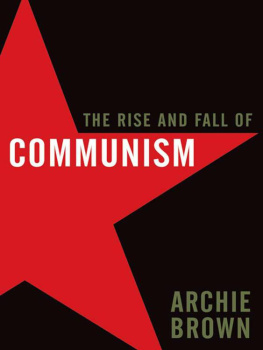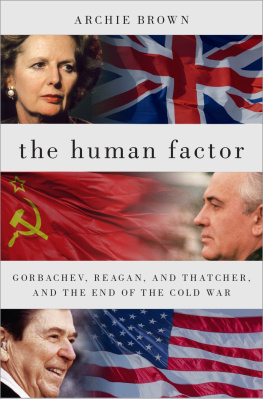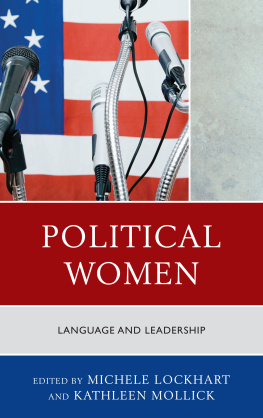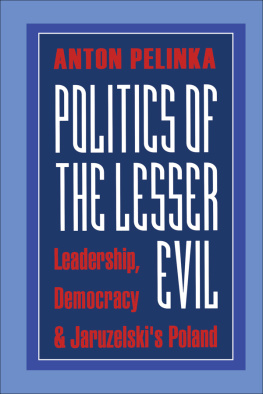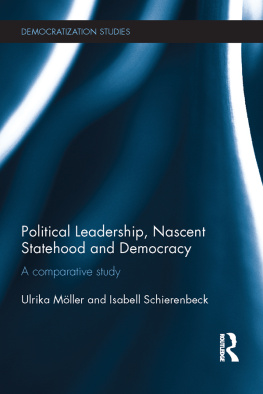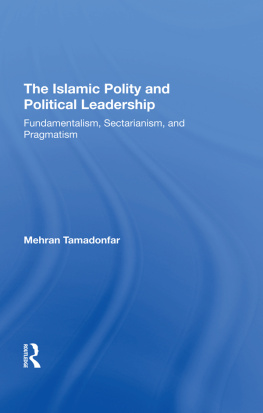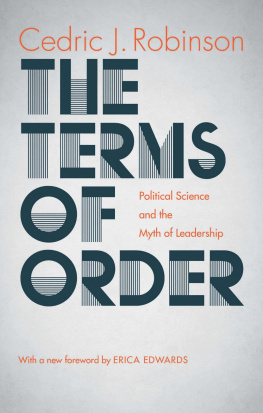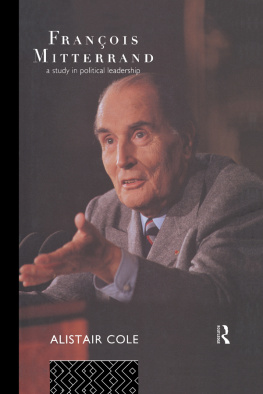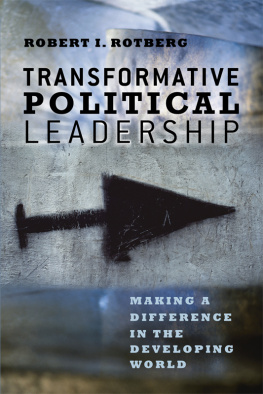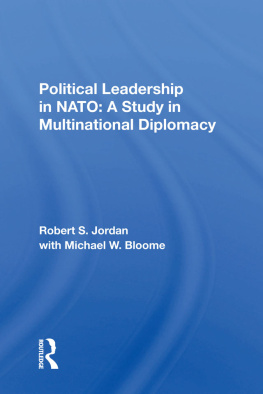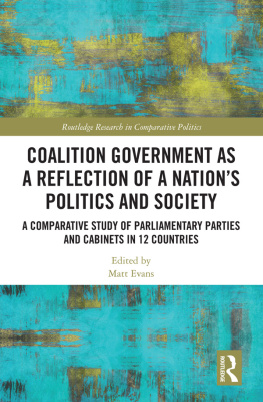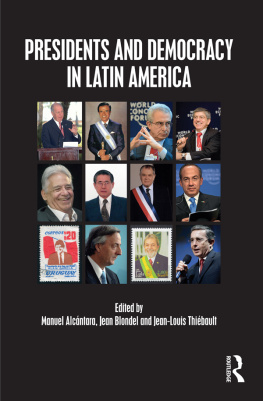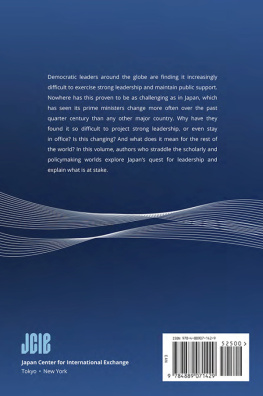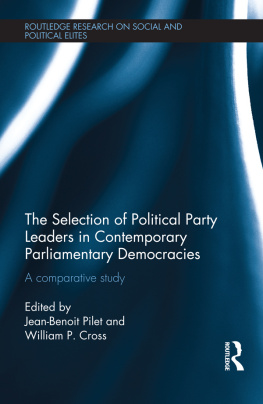Archie Brown - The myth of the strong leader: political leadership in modern politics
Here you can read online Archie Brown - The myth of the strong leader: political leadership in modern politics full text of the book (entire story) in english for free. Download pdf and epub, get meaning, cover and reviews about this ebook. year: 2014, publisher: Basic Books, genre: Politics. Description of the work, (preface) as well as reviews are available. Best literature library LitArk.com created for fans of good reading and offers a wide selection of genres:
Romance novel
Science fiction
Adventure
Detective
Science
History
Home and family
Prose
Art
Politics
Computer
Non-fiction
Religion
Business
Children
Humor
Choose a favorite category and find really read worthwhile books. Enjoy immersion in the world of imagination, feel the emotions of the characters or learn something new for yourself, make an fascinating discovery.

- Book:The myth of the strong leader: political leadership in modern politics
- Author:
- Publisher:Basic Books
- Genre:
- Year:2014
- Rating:4 / 5
- Favourites:Add to favourites
- Your mark:
- 80
- 1
- 2
- 3
- 4
- 5
The myth of the strong leader: political leadership in modern politics: summary, description and annotation
We offer to read an annotation, description, summary or preface (depends on what the author of the book "The myth of the strong leader: political leadership in modern politics" wrote himself). If you haven't found the necessary information about the book — write in the comments, we will try to find it.
From one of the worlds preeminent political historians, a magisterial study of political leadership around the world from the advent of parliamentary democracy to the age of Obama
Archie Brown: author's other books
Who wrote The myth of the strong leader: political leadership in modern politics? Find out the surname, the name of the author of the book and a list of all author's works by series.
The myth of the strong leader: political leadership in modern politics — read online for free the complete book (whole text) full work
Below is the text of the book, divided by pages. System saving the place of the last page read, allows you to conveniently read the book "The myth of the strong leader: political leadership in modern politics" online for free, without having to search again every time where you left off. Put a bookmark, and you can go to the page where you finished reading at any time.
Font size:
Interval:
Bookmark:
More Advance Praise for The Myth of the Strong Leader
The best analysis of the nature of true leadership I have read. Turning his considerable erudition on Russia and communism to the vaguely-discussed but seldom qualitatively defined question of political leadership, Professor Brown dismantles the myth that power equals strength and that strength guarantees positive outcomes. Genuine leadership, he cogently argues, redefines national directions and social agendas and transforms entire political systems as the means to move nations forward. History, experience, and wisdom underwrite his case.
Gary Hart, Former United States Senator
A magnificent achievement, The Myth of the Strong Leader combines bold conceptual analysis with vivid descriptions of leaders ranging from Stalin and Hitler to Roosevelt and Churchill, from Mao Zedong and Fidel Castro to LBJ and Nelson Mandela. Archie Brown examines the types of power and leadership amassed by such diverse figures as Lenin, Ataturk, de Gaulle, Gorbachev, and Margaret Thatcher. This is a book which will be read with sheer pleasure by the general reader for its riveting insights and by students throughout the world as a lucid and witty guide to distinctive kinds of political leadership.
Wm. Roger Louis, University of Texas, Past President of the American Historical Association
This book badly needed to be written, and only Archie Brownwith his unique breadth of scholarly knowledge combined with a finger-tip feel for real-world politicscould possibly have written it. It turns out that there are fewer strong leaders in the world than is often supposed and that many of them, far from being desirable, are positively dangerous. Perhaps the best political systems are those that are effectively leader-proofed.
Anthony King, Professor of Government at the University of Essex and co-author of The Blunders of Our Governments
For nearly a half century, Archie Brown has been one of our most perceptive observers of world leaders and their contexts, from Mikhail Gorbachevs Soviet Union to Margaret Thatchers Britain and beyond. His message is that our virtues are in fact our vices. Being decisive, staying the course, and having a clear vision are lauded as the core requirements of good leadershipyet they have just as often blinded those in authority to the folly of their own choices. Established leaders as well as aspiring ones should heed the lessons in Browns timely book.
Charles King, Professor of International Affairs and Government, Georgetown University
This is a real triumph of scholarship and intellectand brilliantly written. Archie Brown demonstrates how dangerous is the myth of the strong leader and he pinpoints the disservice it does to society. The book is awesome in the depth of its analysis and in providing truly indispensable insights.
Lilia Shevtsova, Chair, Russian Domestic Politics and Political Institutions Program at the Carnegie Moscow Center
THE MYTH
OF THE STRONG
LEADER
ALSO BY ARCHIE BROWN:
The Rise and Fall of Communism
Seven Years that Changed the World
The Demise of Marxism-Leninism in Russia
The Gorbachev Factor

Copyright 2014 by Archie Brown
Published by Basic Books,
A Member of the Perseus Books Group
First published in Great Britain in 2014 by
The Bodley Head
Random House, 20 Vauxhall Bridge Road,
London SWIV 2SA
All rights reserved. No part of this book may be reproduced in any manner whatsoever without written permission except in the case of brief quotations embodied in critical articles and reviews. For information, address Basic Books, 250 West 57th Street, 15th Floor, New York, NY 10107.
Books published by Basic Books are available at special discounts for bulk purchases in the United States by corporations, institutions, and other organizations. For more information, please contact the Special Markets Department at the Perseus Books Group, 2300 Chestnut Street, Suite 200, Philadelphia, PA 19103, or call (800) 810-4145, ext. 5000, or e-mail .
Library of Congress Control Number: 2014931301
ISBN 978-0-465-08097-7 (e-book)
10 9 8 7 6 5 4 3 2 1
Contents
This is an argumentative book and one of the main contentions is already suggested by the title. The central misconception, which I set out to expose, is the notion that strong leaders in the conventional sense of leaders who get their way, dominate their colleagues, and concentrate decision-making in their hands, are the most successful and admirable. While some leaders who come into that category emerge more positively than negatively, in general huge power amassed by an individual leader paves the way for important errors at best and disaster and massive bloodshed at worst. Although the book also examines many other aspects of political leadership, what I call the myth of the strong leader is a central thread which unifies the discussion of democratic, revolutionary, authoritarian and totalitarian leaders. Those in the first of these categories can do far less damage, precisely because there are constraints upon their power from outside government. It is, nevertheless, an illusion and one as dangerous as it is widespread that in contemporary democracies the more a leader dominates his or her political party and Cabinet, the greater the leader. A more collegial style of leadership is too often characterized as a weakness, the advantages of a more collective political leadership too commonly overlooked.
The evidence is drawn from many different democracies with Great Britain and the United States bulking large and from a variety of authoritarian and totalitarian systems. When I turn to such dictatorial regimes, Communist leaders, as well as Hitler and Mussolini, get special attention. The scope is much broader, though, than the countries and leaders already mentioned. The chapter on revolutions in authoritarian systems ranges from Mexico to the Middle East. In its historical reach, the book aims to cover the whole of the twentieth century and what has happened thus far in the twenty-first. Notwithstanding the necessary element of selectivity, the conclusions I come to are intended to be of some general validity. The books arguments are addressed to any citizen who thinks about how we are governed. My hope is that they may have an impact also on politicians themselves and on those who write about politics.
During the writing, and especially in the longer-term gestation, of this book, I have drawn not only on political memoirs, archives, newspapers and other mass media, and on the work of historians, political scientists and social psychologists, but also on many of my own meetings with politicians from different countries. These have included ad hoc consultation by prime ministers and secretaries of state for foreign affairs from different political parties in Britain, participation in the 1980s in policy seminars in Britain and the United States, taking part in twenty-first-century conferences with former heads of government, and meetings with senior figures within ruling Communist parties (usually, but in the case of some Communist reformers not only, after they had left or had been removed from office).
The book is a product of more than fifty years of study of politics, and of research and lecturing on the subject in different parts of North America, Europe and Asia. Great Britain apart, the country in which I have spent most time has been the United States where I have learned much during teaching and research spells as a Visiting Professor of Political Science at Yale, the University of Connecticut, Columbia University (New York) and the University of Texas at Austin, as well as during a Visiting Fellowship at the Kellogg Institute for International Studies of the University of Notre Dame (Indiana). I have spent almost as much time in Russia, in both the Soviet and the post-Soviet periods. I first arrived in Moscow on a British Council exchange scholarship in January 1966. That three-month visit was followed by an academic year in Moscow State University in 196768, also under the auspices of the British Council. I have made some forty visits to Russia since then.
Next pageFont size:
Interval:
Bookmark:
Similar books «The myth of the strong leader: political leadership in modern politics»
Look at similar books to The myth of the strong leader: political leadership in modern politics. We have selected literature similar in name and meaning in the hope of providing readers with more options to find new, interesting, not yet read works.
Discussion, reviews of the book The myth of the strong leader: political leadership in modern politics and just readers' own opinions. Leave your comments, write what you think about the work, its meaning or the main characters. Specify what exactly you liked and what you didn't like, and why you think so.

